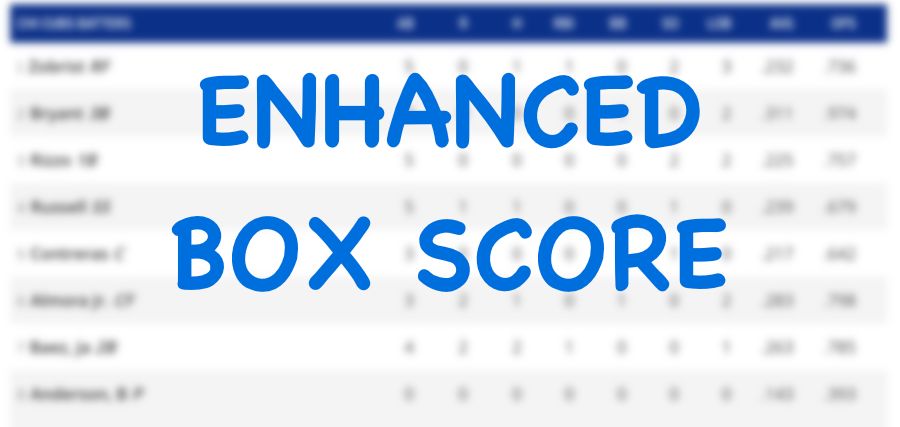
On the one hand, short-term deals for 30-ish aged starting pitchers is the order of the day for a wisely rebuilding club – just look at what the Cubs were able to do with Paul Maholm last year.
On the other hand, Baker is coming off of Tommy John surgery last Spring, and, although he’ll be available to pitch in 2013, the prevailing wisdom is that a pitcher is not back to 100 percent until his second full year after TJS. In Baker’s case, that would be 2014.
So, what exactly was the plan with Baker? His comeback is such that he’s not likely to become a flippable piece, but the Cubs probably aren’t going to be competitive in 2013. So why ink him to a one-year, $5.5 million deal in the first place (plus $1.5 million in incentives)? Sure, part of the reason is that Baker undoubtedly wanted a one-year, no-option deal to prove himself. But why would the Cubs be willing to be the team that pays him to get himself in position for a bigger contract in 2014?
Well, it could be that the Cubs are hoping that they are given the first crack at giving him that bigger contract – and that their largesse in 2013 buys them a little discount on an extension.
Dave Cameron at FanGraphs, in writing up his 10 best transactions of the offseason, mentioned the Cubs’ signing of Baker among much larger moves:
It’s a one year deal, and there’s a chance that Baker might not even be healthy for the first part of the 2013 season, so it’s really more of a one-half-of-one-year deal. So, why the love for a short term contract on a rebuilding team? Because, if Baker returns to prior form as a well above average starter, this is likely to result in another contract between the two, providing even more value to the Cubs in the future. Players tend to be loyal to teams that give them paychecks while they’re rehabbing, and the Cubs have essentially bought an opportunity to convince a healthy Scott Baker to stick around in Chicago instead of hitting free agency again next winter. If he’s not healthy, they haven’t risked much. If he is, his next contract with the Cubs could be a huge steal, and this short term deal gives them a chance to land that deal before Baker becomes a free agent again.
The Cubs’ front office has said similar things about a possible future with Baker, so it isn’t inconceivable that the plan all along has been to see how Baker’s recovery goes, and to hope that the natural wooing effect of playing in Chicago will make Baker want to stay for a few more effective years after 2013. Baker turned 31 in September, so a two or three-year deal beyond 2013 would still be an attractive option.
And don’t sleep on Baker’s ability. He was quietly very good in Minnesota for years – from 2007 to 2011, his FIP and WAR were 3.89/2.9, 3.79/3.5, 4.08/3.5, 3.96/2.6, and 3.45/2.8. His career K/BB is an excellent 3.44. Dude can pitch, assuming he recovers well from the surgery.
How is that recovery going, by the way?
Well, his rehab/training schedule is supposed to have him participating in Spring Training just about as normally as he would be, and is supposed to have him ready to start the season. Because of the Cubs’ depth in rotation possibilities – Samardzija, Garza, Jackson, Feldman, Wood, Villanueva, in addition to Baker – there is still the possibility that the Cubs could open the season with Baker on the disabled list, merely as a prophylactic measure. Or, they could have him open the season active, but in a piggy-back role with another starter candidate, which would help limit his innings in the early (cold) weeks of the season.
For his part, Baker suggests the surgery could actually end up being a good thing for him.
“I tried to utilize the time and not just go through the motions,” he told Patrick Mooney. “You don’t try to reinvent yourself, but you definitely try to get back to the basics and get back to the things that you know helped you be successful at the beginning. In saying that, you really focus on the mechanics and try to do things that are very easy to get away from over a career. You don’t feel like you waste time doing that. Obviously, you have to put in the reps, do the strength training program, the throwing program and all that. You are more of a complete pitcher when you’re finally through the rehab process.”
Like many pitchers, Baker was probably pitching through arm pain and weakness for years before ultimately getting surgery, so even the rest associated with a year off from pitching may not have been the worst thing in the world.
“I tell you what, it’s kind of exciting to – I don’t want to say have a new arm, but – have a tune-up and have the knowledge that I have knowing how to pitch,” Baker continued. “I know things are taken care of. I just have to concentrate on pitching. It just really makes you feel good and makes you feel ready for the season.”
Here’s hoping he has a healthy and effective 2013, whenever it begins for him, and the Cubs then have the option of extending that relationship.
































